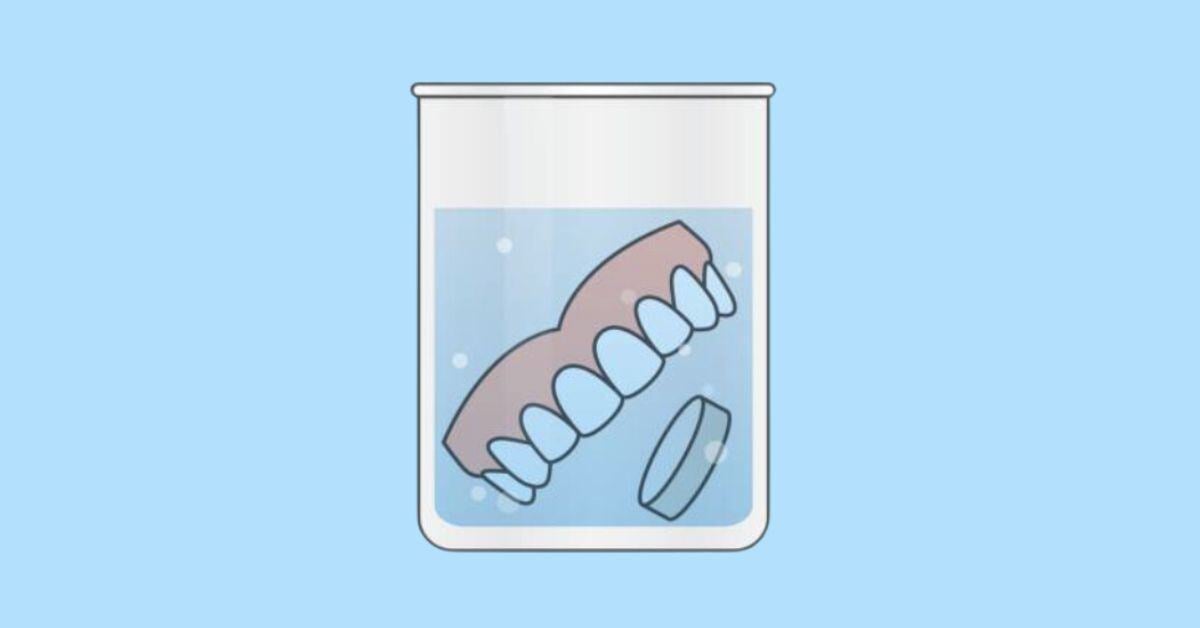Dentists can enhance the quality of life for individuals who have lost their natural teeth, restoring both function and aesthetics through the use of 3D Printed Digital Dentures.
While a dentist can't show up to their patient's home every day to ensure they're properly caring for their dentures, they can provide patients with the necessary information and guidance for care before they stand up from the dentist's chair. In this blog, we will provide essential tips for patients on how to care for their dentures. Dentists should share this information with their patients so that they can maintain good oral health and prolong the lifespan of their dentures.
Daily Cleaning Routine
Patients will need to establish a daily cleaning routine to keep their dentures clean and free from bacteria. They should do this routine in the morning and at night, just as they would if they were brushing natural teeth. Patients should adhere to the following steps.
1. Rinse After Eating
Patients should rinse their dentures after every meal. They can use warm water to remove any food particles or debris that may have gotten stuck in the dentures. If a patient doesn't rinse after eating, remaining food particles can lead to bad breath or bacterial infections in their mouth.
2. Brush Daily
Hopefully, patients have been brushing their natural teeth for years, so this step should be easy to incorporate into their daily routine. They should avoid regular toothbrushes and toothpaste because they can be too abrasive for dentures; instead, they should use a soft-bristled brush and a dental cleaner to brush their teeth. They should brush at least twice a day for two minutes each time to remove all bacteria and plaque buildup.
3. Do Not Soak Overnight
Patients should remove their dentures before going to bed and place them in a container. Unlike traditional acrylic dentures, patients should not soak their 3D Printed Digital Dentures overnight.

Handling Dentures With Care
Dentures aren't as delicate as glass, but patients should treat them like they are. Rough handling of dentures can lead to breakage, warping, and discomfort. Below are some handling tips for patients.
1. Avoiding Damage
To minimize the risk of breaking their dentures, patients should handle them over a soft surface, such as a towel, or in a sink filled with water. They should store their dentures in a container with a lid when not using them to prevent loss or damage.
2. Regular Check-ups
Patients should visit their dentist at least twice a year for check-ups and cleanings. During these visits, the dentist can also check for any signs of damage or wear and make necessary adjustments to ensure a proper fit. They can also provide a deep cleaning to remove any plaque or tartar buildup that may be difficult for patients to remove at home.
Diet and Lifestyle Considerations
A patient's diet and lifestyle can affect the health and lifespan of their dentures. Below are some things patients should consider.
1. Diet Adjustments
When patients first get their dentures, they may experience some soreness or discomfort as the muscles in their mouth adjust. Advise patients to start with softer foods and gradually incorporate harder items into their diet as they become more comfortable with their dentures. But even once they're comfortable, patients should still avoid very hard, sticky, or chewy foods that could damage their dentures or cause discomfort.
2. Staying Hydrated
For those who wear dentures, dry mouth is a common problem that can cause discomfort and promote bacterial growth. Patients should drink plenty of water throughout the day to keep their mouths moist. They should avoid drinking caffeinated or alcoholic beverages; though these are fluid in nature, they can actually dehydrate the body. This is because both caffeine and alcohol are diuretics, meaning they cause the body to lose more water than normal.

Recognizing When to Seek Help
While dentists provide patients with the tools and information to take care of their dentures on their own, there may come a time when they need further professional assistance. Patients should keep an eye out for any signs of damage or discomfort and seek help if necessary. Review these common red flags that patients should be aware of.
1. Signs of Trouble
Patients should report any discomfort, soreness, or persistent irritation to their dentist promptly. These can be signs that the dentures need to be adjusted or replaced. Many patients may also experience changes in their mouths over time, such as weight loss or bone resorption, which can affect the fit of their dentures. Dentists can make the necessary adjustments to ensure the patient's comfort and prevent further issues.
2. Periodic Replacement
Dentures don't last forever. Dentists should let their patients know that they’ll likely need to replace their dentures every 5–10 years, depending on wear and tear and how well they take care of them. Encourage patients to discuss replacement options with their dentist during regular check-ups so that they can plan accordingly.
Proper care for dentures is essential for maintaining their function and appearance and the overall health of the wearer. By following these tips on how to care for their dentures, patients can enjoy a comfortable and confident smile. Encourage patients to establish a daily routine that includes cleaning, handling, and regular dental visits to ensure their dentures remain in top condition.
If you're a dentist who needs the assistance of a dental lab to create well-fitting, comfortable 3D Printed Digital Dentures for a patient, reach out to DDS Lab. We provide dental lab services for dentists and dental professionals across the US. We use only the highest quality materials and technology to create custom dentures for your patients. Patient care is important, but if patients don't have dentures that fit and function properly, it can be challenging for them to maintain their oral health. Let DDS Lab help you provide your patients with the best possible dental care. Submit a case for us to work on today!
